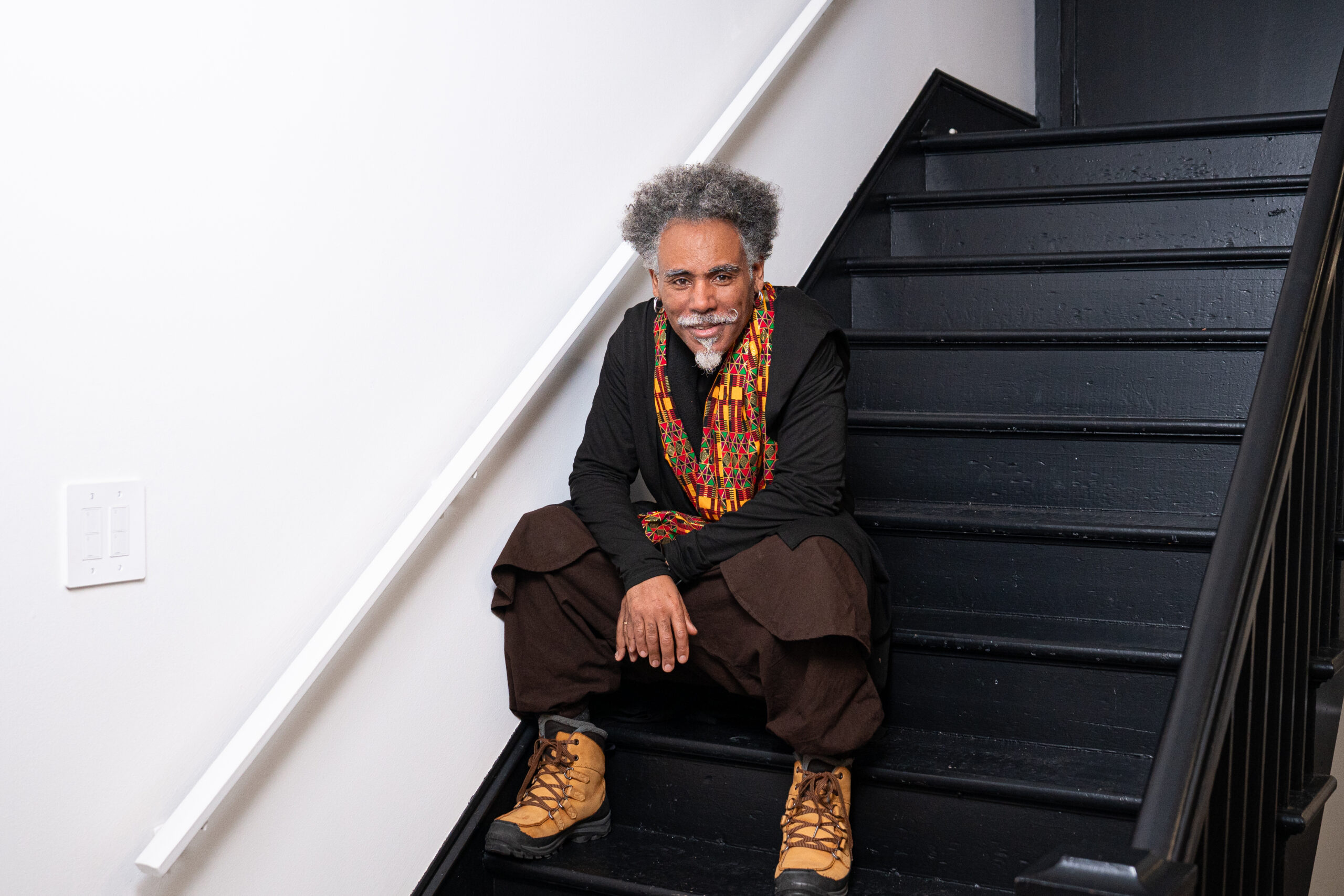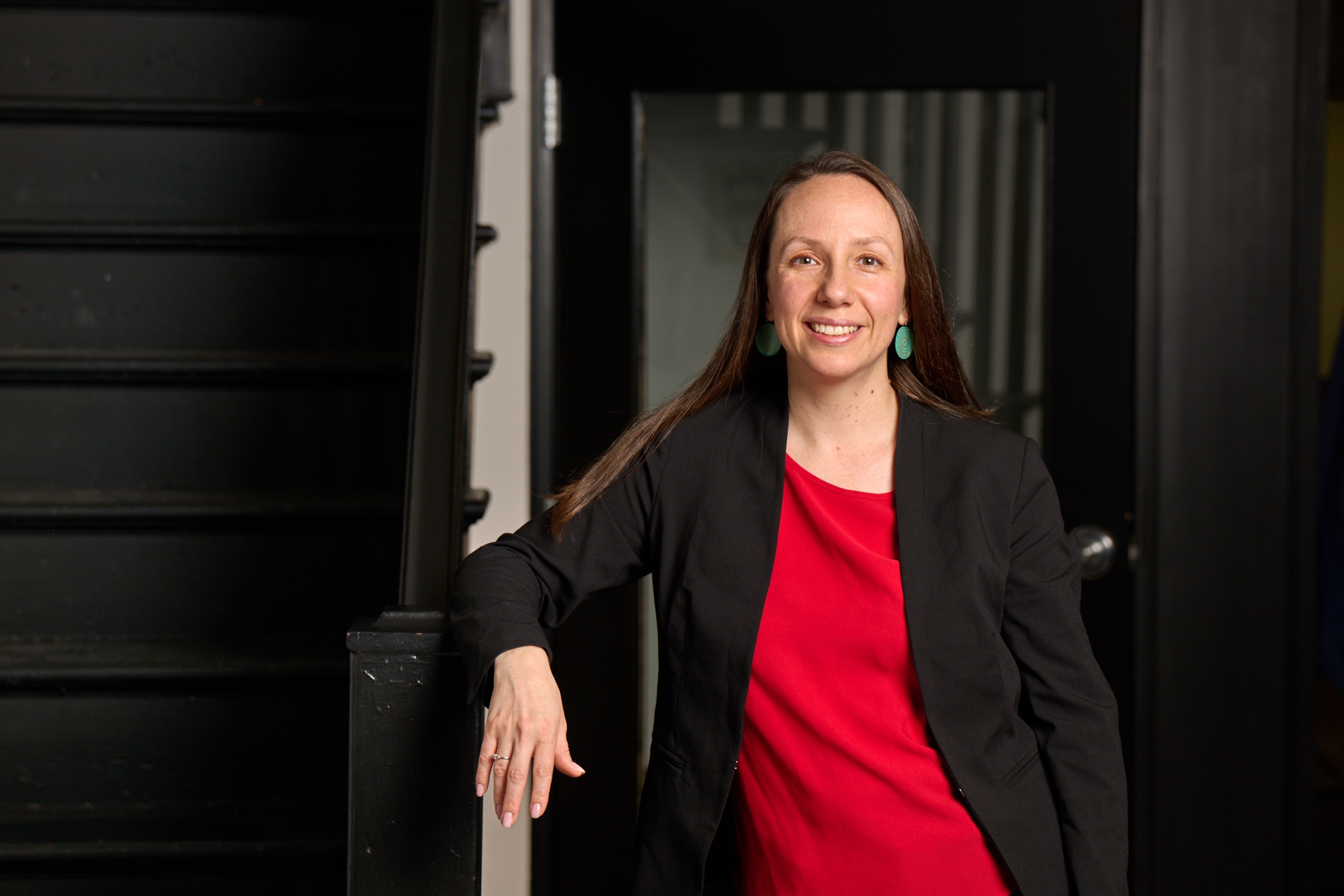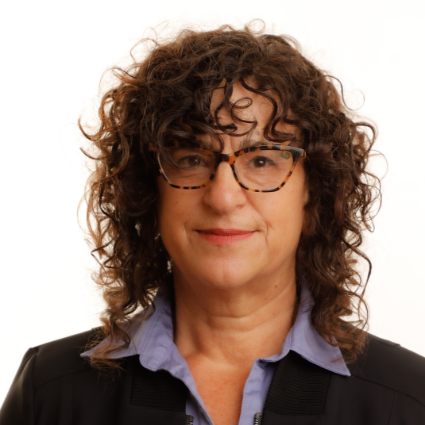CANADA RESEARCH CHAIRs
NSCAD currently has three Canada Research Chairs — Dr. Eddy Firmin, Tier 2 Canada Research Chair in Transatlantic Black Diasporic Art and Community Engagement; Dr. April Mandrona, Tier 2 Canada Research Chair in Art Education, Belonging and Social Change; and Dr. Leah Decter, Tier 2 Canada Research Chair in Creative Technologies and Community Engagement. The CRCs employment is governed by CRCP policies and the FUNSCAD Unit 1 Collective Agreement.

In March 2025, NSCAD welcomed Dr. Eddy Firmin as the university’s newest Canada Research Chair (Tier 2) in Transatlantic Black Diasporic Art and Community Engagement. He is the first Black visual artist in Canada to hold this title.
An assistant professor in the Division of Fine Arts, Firmin started at NSCAD in December 2024. His work will focus on two closely related practices: theoretical research that examines decolonial creative practices as systems of resistance, which is closely tied to an equally important second part: artistic practices and community engagement.
Listen to an interview with Dr. Firmin on CBC radio (April 7, 2025)

In November 2024, NSCAD announced Dr. April Mandrona as a CRC (Tier 2) in Art Education, Belonging and Social Change.
Dr. Mandrona is an Associate Professor in the Division of Art History and Contemporary Culture, Art Education. She holds a PhD in Art Education from Concordia University and was a SSHRC postdoctoral fellow in McGill University’s Department of Integrated Studies in Education.
As a CRC, Mandrona’s research will use art education approaches with young newcomers to Canada to re-imagine libraries as sites of community well-being, belonging and social inclusion.

In December 2020, NSCAD announced Dr. Leah Decter as its Tier 2 Canada Research Chair in Creative Technologies and Community Engagement. Dr. Decter is an inter-media/performance artist and scholar based in Winnipeg, MB, Treaty 1 Territory.
Dr. Decter is also working with Tahltan artist, scholar and educator Peter Morin as co-director to launch a Centre for Inter-media Arts and Decolonial Expression (CiMADE) at NSCAD to create opportunities for diverse students, artists, scholars and communities to explore, engage and experiment with decolonial practices through innovation in inter-media arts.
About Canada research Chairs at NSCAD
NSCAD University’s commitment to equity, diversity and inclusion
As our institutional statements and strategic initiatives articulate, NSCAD University is strongly dedicated to promoting fairness and equality by embracing diversity and fostering inclusion.
Here at NSCAD University, we aim to build a welcoming and diverse community that respects the rights of all individuals and encourages respect for everyone’s dignity and worth. We strive to establish a space where every student, faculty member, and staff member can actively participate in the university’s academic and professional endeavours, empowering them to excel as integral members of our community.
NSCAD has developed an Equity, Diversity, and Inclusion (EDI) Targeted Action Plan to address systemic inequities and foster a more inclusive environment for all. This strategy aligns with our goals and considers feedback from influential individuals like educators, employees, students and community members. It details actions to break down obstacles in attracting, employing, keeping and promoting staff members with a particular emphasis on helping Indigenous people, African Nova Scotians and other groups who have faced historical marginalization.
In line with our Strategic Research Plan, our core goals are to promote equity and inclusion across our creative environment, actively incorporating these values into our teaching materials, policies, research and community involvement activities, upcoming initiatives such as the Institute for Art Community and Transdisciplinary Studies (InACTS ) are designed to amplify a variety of perspectives and approaches leading the way, in innovation and societal change.
By working consistently and taking on a collective duty within the university community, NSCAD fosters a culture that appreciates collaboration, addresses entrenched patterns of exclusion and utilizes the impactful nature of art and design to shape a fairer and more diverse tomorrow.
EDI Requests for Information, Questions or Concerns
At NSCAD, all feedback, concerns and requests for information are received and addressed by the EDI Working Group (comprised of members of senior management including Leanne Dowe, CFO; Owen Gottchalk, Interim AVP Operations; and Jana Macalik, Interim VP (Academics and Research) and Provost). If you would like to contact the working group, email EDI@nscad.ca and you will receive a response within 1-2 business days.
CRC Equity Targets
Based on the population of Canada, the CRC’s 2029 equity targets are as follows:
- Indigenous peoples – 4.9%
- Persons with disabilities – 7.5%
- Racialized minorities – 22%
- Women – 50.9%
Read more about population-based equity targets.
NSCAD University, as a small institution (with fewer than 40 chairs), commits to meet the established targets for larger institutions.
Please click here to access NSCAD University’s Equity Target-Setting Tool.
Canada Research Chair Opportunities at NSCAD
Current openings
Archived Vacancy Notices
- Internal applicants only: Open call for a Tier 2 Canada Research Chair (CRC)
- Canada Research Chair (tier-2) – Transatlantic Black Diasporic Art and Community Engagement
- Canada Research Chair (tier-2) – Art Education Belonging and Social Change
- Canada Research Chair (Tier 1) Indigenous Art and Community Engagement or Transatlantic Black Diasporic Art and Community Engagement
- Canada Research Chair (Tier 2) in Creative Technology
If you have questions, comments or would like to participate in NSCAD’s EDI efforts, please email EDI@nscad.ca.
Links
- Canada Research Chairs
- Public accountability and transparency requirements for institutions with an allocation of less than five chairs
- Transparency statement for using emergency retention mechanism
- CRC Equity, Diversity and Inclusion Progress Report
- The Institute for the Study of Canadian Slavery
- Equity, Diversity and Inclusion Requirements and Practices
- 2019 Addendum to the 2006 Canadian Human Rights Settlement Agreement
- Program Statistics
- Requirement for recruiting and nominating CRCs
- CRCP utilization spreadsheet
- University Policies
- FUNSCAD Unit I Collective Agreement
- Strategy for raising awareness within the institution of its commitment to and the benefits of EDI within the CRCP and the broader research ecosystem
